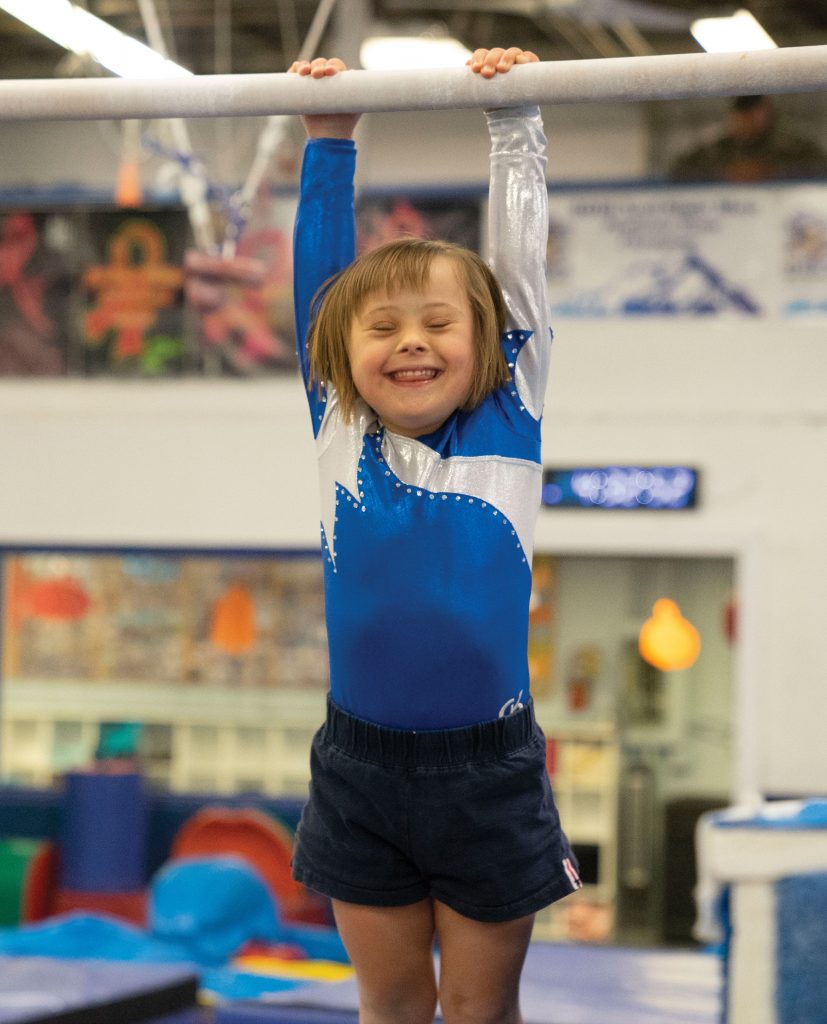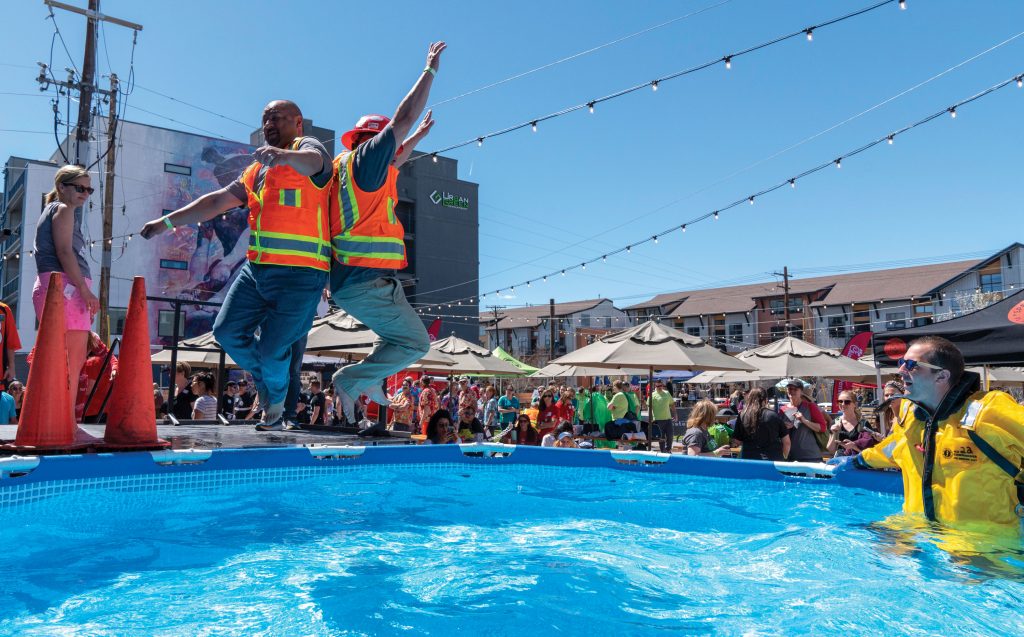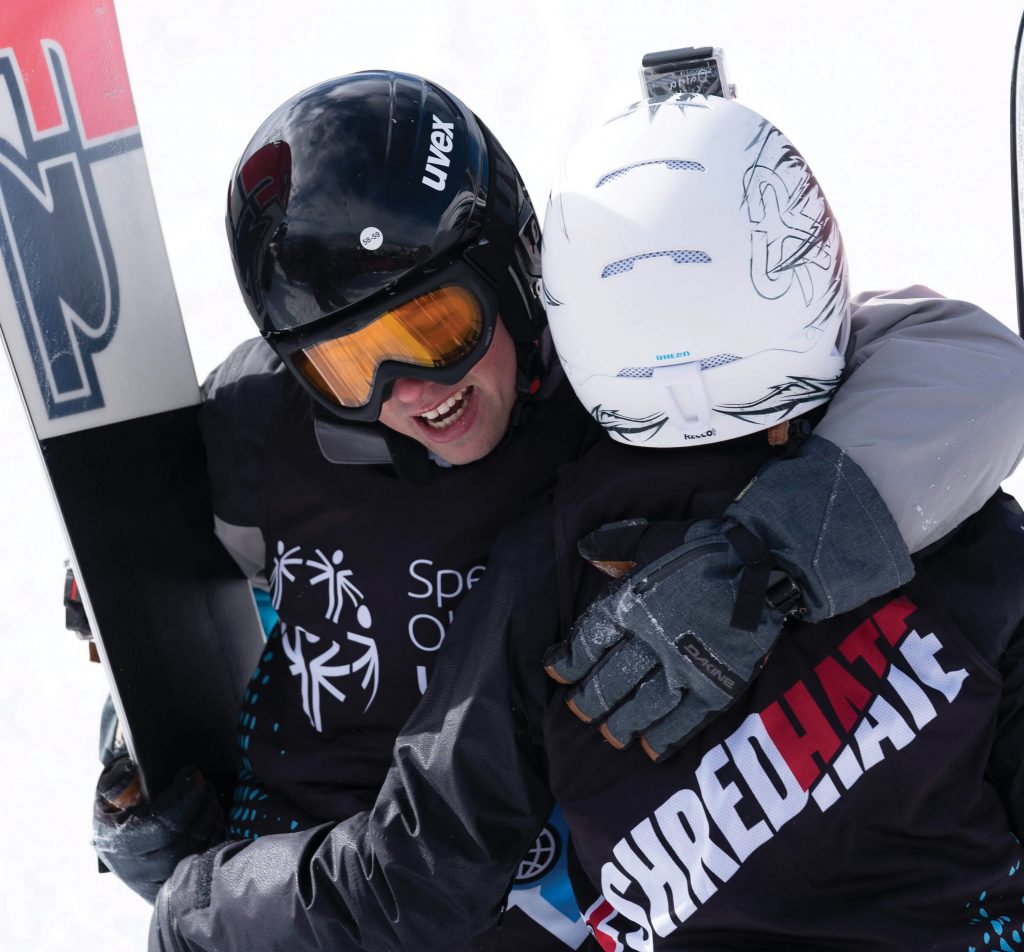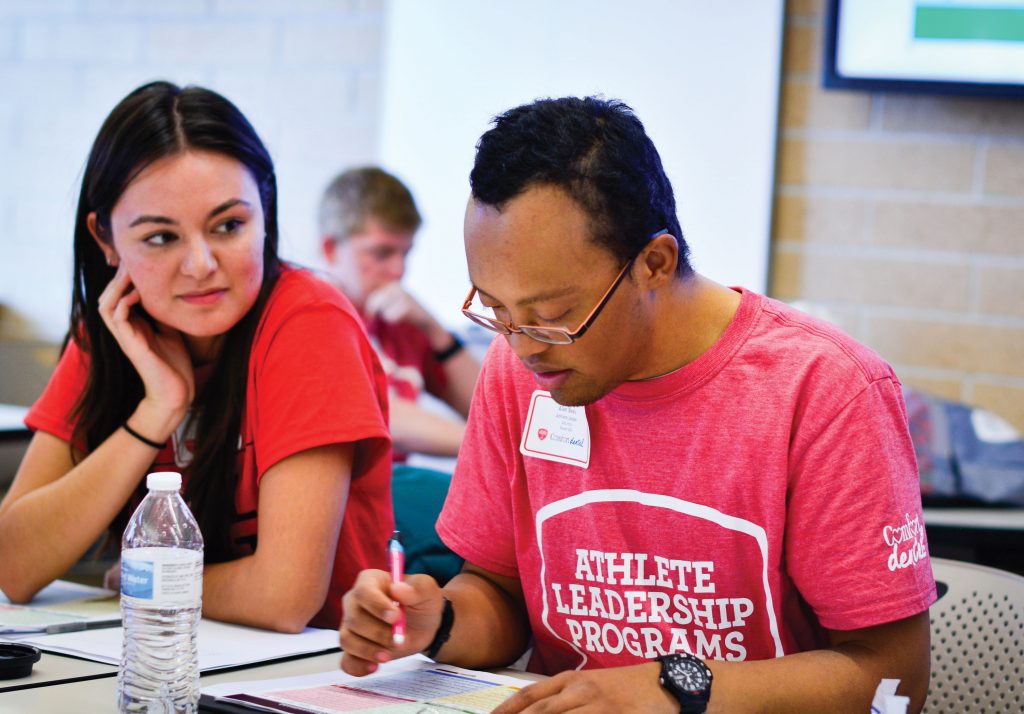Photos by Brian Johnson Photo

A lot has changed for Special Olympics in the last 52 years. The global sports organization serving people with intellectual disabilities went from assembling a small camp in founder Eunice Kennedy Shriver’s backyard to holding the title as the largest sports nonprofit in the world, helping more than 5 million individuals.
For the Centennial-based Colorado chapter, famous for its annual Polar Plunge fundraiser, and its more than 25,000 local competitors and 10,000 volunteers, life has maybe transformed even more.
“Jeff Clark, our 2019 male athlete of the year, has been competing with Special Olympics for nearly three decades,” says CEO and president Megan Scremin. “In the beginning, he had been waiting to get glasses for more than two years but couldn’t afford an eye exam or prescription glasses—he was using his phone to zoom in on reading materials. We have a health program for our athletes where we provide free health screenings: We were able to get Jeff prescription glasses. Since then, he competes in seven sports with us and has been thriving.”
“It’s been a blessing being involved with Special Olympics,” says Clark. “I get to compete all year now, and get to know other volunteers, athletes and coaches. I don’t think I’d be where I am today without Special Olympics.”
This is one of the few athletic spaces where playing for almost thirty years isn’t a rare occurrence. Special Olympics Colorado’s programs are divided into school-based and community programs with hundreds of teams, which means “anyone between the ages of 2 and 90 can train and compete,” Scremin explains. “We have some adults who compete well into their 80s.”

When competitors aren’t scoring points, they are taking in leadership experiences, getting health screenings like Clark and more. Where else has time taken the Centennial establishment? We asked Scremin to bring us up to speed.
WHAT IS THE MOTIVATION BEHIND SPECIAL OLYMPICS TODAY?
“Our mission is to make sure that people with intellectual differences have the same opportunities as everyone else. We’re very much an organization that is working to create an inclusive society. … We’re here to include every single person, so athletes with intellectual differences and those who are typically developing can compete alongside one another.”
HOW HAS THE UNIFIED CHAMPION SCHOOLS PROGRAM GROWN?
“The Unified Schools program is our involvement with local schools in the area. Right now, we’re in 400 schools across the state and are impacting 330,000 students. The term ‘unified’ means both typically developing youth and intellectually disabled youth are participating in sports and activities together as a team. We know that school can be a hard place for anyone, but it’s especially hard for students with intellectual differences. They are three to four times more likely to be bullied than their typically developing peers, so inclusion is really important.
“The program is made up of four parts: unified sports, youth leadership, whole school engagement and in-school health programming. … Those involved in sports play a competitive schedule, have fans in the stands, have uniforms and they letter in sports. Not only that, but we also have school rallies and inclusion campaigns where students take a pledge to include others.”
WHEN IS GAME SEASON?
“People are always surprised when they ask when Special Olympics games are held and we tell them year-round. We have more than 100 opportunities for our athletes to train and compete each year, and that includes competitions at the regional and state levels. Our most popular sports are basketball, bowling and track and field.”
TELL US ABOUT YOUR HEALTH AND WELLNESS SUPPORT.
“We provide free health screenings from trained doctors who work with people with intellectual disabilities, among other health-focused services. As an organization, we have trained more than 120,000 health professionals and have conducted more than 1.2 million health screenings globally. In 2019 alone, we provided roughly 1,800 screenings to our local athletes. And that’s really important to us. On average, our athletes die 16 years earlier than typically developing peers. That’s not because of their disability—it’s because of a lack of access to basic healthcare.
“All of the services we provide to athletes are free, which is key because half of our athletes have a household income below the federal poverty level. To put that into perspective, 15 percent of individuals with intellectual differences are employed on average—compare that with Special Olympics athletes and the rate skyrockets to 64 percent.”
WHAT’S THE STORY BEHIND THE POLAR PLUNGE?
“The idea behind the Polar Plunge is that Special Olympics athletes challenge themselves every single day, so, worldwide, we can challenge ourselves for a few quick seconds to raise awareness and funds for the athletes. It’s the largest fundraising series for our chapter, comprised of eight different plunges that take place around the state this month through April. We also have a 5K at the Denver Plunge at Wash Park and at the Aurora Plunge at the Aurora Reservoir. … We typically raise around $500,000 annually from the Polar Plunge alone. It’s really amazing to watch the community come together and rally around such an amazing cause.”
SAVE THE DATE
Take one of the first POLAR PLUNGES at Aurora Reservoir or Pueblo Reservoir on Feb. 22.
GET INVOLVED
Special Olympics Colorado
Centennial
720.359.3100




